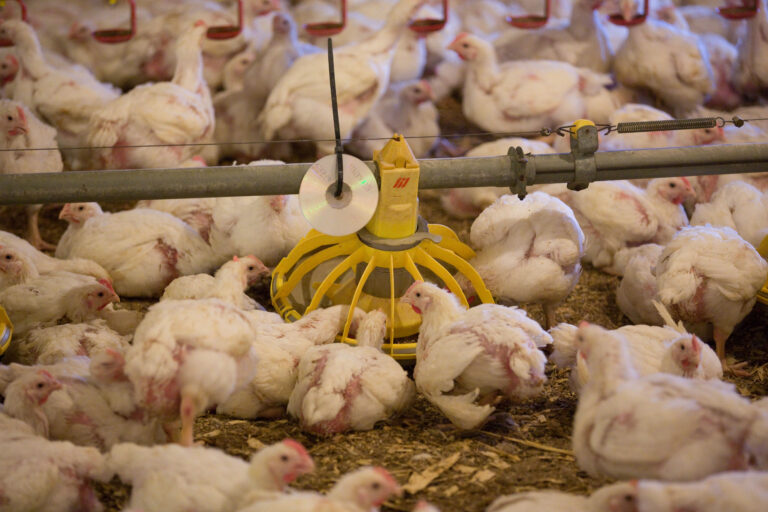Don’t overlook coccidiosis challenges this summer
By Allan Ball, Slate Hall Veterinary Services
The cold, wet weather over the winter months means it is often regarded as the ‘coccidiosis season’.
Wet weather combined with challenging ventilation of poultry sheds can lead to higher litter moisture – higher humidity and temperatures suitable for optimal bird growth result in the optimum environment for coccidia cycling.
Over the more challenging period of winter, when site cleaning and disinfection may also be compromised, it can result in a higher risk of secondary intestinal viral challenges. This, in combination with coccidiosis, will impact negatively on Intestinal Integrity, and compromise flock health and performance. However, the prevalence and impact of coccidiosis during the summer should not be overlooked.
When it comes to coccidiosis control, no matter the time of year, there are three key elements to focus on – flock health and immunity, farm management and optimal intestinal health.
During the summer, erratic feed intake as a result of warm weather results in irregular coccidiostat intake, and the intestinal stability over this period can be impacted. Therefore, it is important not to be complacent about coccidiosis control during the warmer months when the impact of this may not be as noticeable in the shed environment, but more so in the flock performance data at the end of the crop.
Despite summer being perceived as a lower-risk period, it is important to maintain constant coccidiosis control during this time through a stable programme, and to focus the attention where challenges exist around additional biosecurity or cleaning and disinfection procedures.
Health tracking has shown that elevated coccidiosis peaks are seen in the mid-summer months, likely as a result of variance in feed intake levels noted previously.
Hence during the summer, stability in the control programme is paramount as there will be opportunities for additional measures to be completed.
Producers should be cautious when considering changes to coccidiosis control programmes, as this can alter the levels of coccidiosis, and it can take some time for a stable coccidial population to return to the flock.
When considering coccidiosis control programmes, it is recommended that producers stay with the same products throughout several cycles and monitor the birds’ response and performance.
It can take multiple flocks for the impact of change to be seen, which is why it is important to avoid making frequent changes. If after several flocks you note intestinal instability with the presence of coccidiosis, it is advised to consult your vet to review your coccidiosis and health management programmes to see if amends can be made.
Simple measures during the summer, such as allowing adequate time to thoroughly clean, disinfect and dry the farm between growing cycles can have a big impact on controlling coccidia oocyst levels, alongside using detergents and disinfectants targeted towards coccidiosis to dwarf walls and floors. The infective life stage of coccidiosis, oocysts, thrive in moisture, so reducing their burden by scheduling a day for housing to dry in the turnaround cycle can also help reduce the carry-over of challenge between crops.
Coccidiostats are in two forms, namely chemical coccidiostats, and ionophores (and combinations of these categories). The coccidiosis control programme will be recommended depending on farm production data, individual farm performance and regional challenges that have been diagnosed on macroscopic and microscopic intestinal health reviews.
The modes of action differ between the categories of coccidiostats. Chemical coccidiostats act by actively disrupting the life cycle of coccidiosis, whilst the ionophores act by reducing the cycling, hence relying on the birds immune function to provide protection.
Ideally, by exposing flocks to coccidiosis at an early age, before stocking densities are at their maximum and allowing birds immunity to develop to the coccidiosis challenge, will reduce the negative impact the challenge has later in the flock when the daily weight gain is critical prior to slaughter.
Elanco’s HTSi service is a useful tool to get a better understanding of the stability of coccidial population control on-farm. However, it is recommended that any type of reporting is looked at from a seasonal trending point of view rather than monthly. This wider view supports decision-making based on trends rather than on a month-by-month basis.


